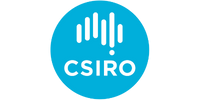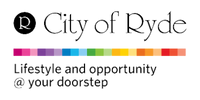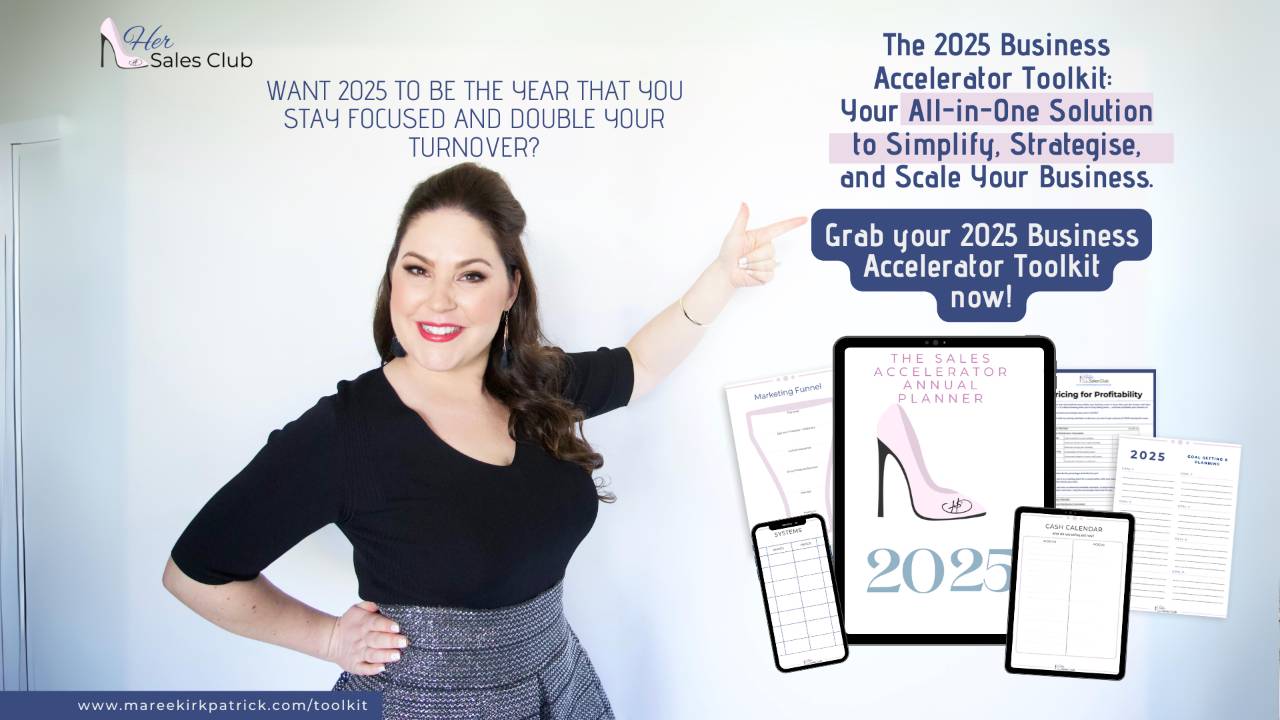Podcast Episode

In this episode of the Sales Show, the focus is squarely on demystifying email marketing. Kicking off the conversation, the host paints a hypothetical picture of a world where popular social media networks abruptly disappear—an event that could potentially cripple businesses too reliant on these platforms. Instead, the episode champions email marketing as a robust and dependable channel.
Listeners will learn about the common pitfalls in email marketing that lead to failure. Issues such as inconsistency, making content too self-focused, and overly formal or robotic tone significantly detract from the effectiveness of email outreach. Moreover, the episode sheds light on how AI-generated emails might lack the human connection that readers crave.
To rectify these issues, the episode provides a straightforward framework for crafting emails that are personal, story-driven, and value-laden; essentially making connections with recipients rather than just selling to them. With a strong format, an engaging narrative, and a clear call to action, your emails can go from being mere messages to significant steps in your sales strategy.
By episode's end, listeners will feel equipped to revamp their approach to email marketing, turning each email into a purposeful, conversion-driving communication.
Key Takeaways
-
Email marketing is a stable, reliable platform that business owners should prioritize over social media.
-
Inconsistency and self-centered content are detrimental to email campaigns.
-
Emails should feel like a conversation, incorporating personal stories and engagement.
-
Presenting value first and selling second builds trust and interest in your audience.
-
Creating urgency with genuine reasons is more effective than pressure tactics.
TRANSCRIPT
Hello, and welcome back to the sales show. I'm super excited today because I want to play a little game with you. What if I told you that tomorrow Instagram, Facebook, or Tiktok, or all of the above, would all of a sudden disappear. You had no warning. You had no idea that it was going to happen. But it all just disappeared. How would you make your money in your business? Would you? Panic because your entire business potentially relies on social media. Do you know what I see this all the time? And I want to know? Would you feel secure, knowing that you have a database and a list of people who already know, like trust you and have potentially already bought from you. This, my beautiful people, is why email marketing matters. Some people have said that email marketing is very much a dead space these days, and I completely disagree. The reason why is, although, yes, there are a lot of emails going out these days. A lot of businesses do it. It's about having emails that count.
Okay, social media is great. But it is absolutely a borrowed space. It is just a tool. We do not own it. If Zuckerberg or any one of his mates want to change what it is that they're doing with social media. You lose your business, or which is what I've also seen. A lot of business owners have been locked out or had accounts hacked and things like that. So you do not own your social media. your emails, though, on your database, is your business's most valuable asset. Okay? But the challenge is that most business owners are using email all wrong. They send emails whenever they remember, or they only email people when they want to sell something or they write emails based on or generated by by AI instead of by a real human. And they're lacking connection. Or they think that they need these really pretty fancy graphics and long newsletters when actually, what we really need is just really simple and clean messaging to get across how we can really help our ideal clients. So what I want you to know is that when you write emails that people actually open and read. they can convert. And it can be a lot easier than what you actually think it can. So in this episode of the sales show, I actually want to go and look at what are the biggest mistakes that business owners make with their email marketing, because if you can identify some of them, then you can change it. I also want to give you a really simple framework that can make writing your emails really easy and effective, takes the workload or the mental load out of it for you. And I also want to show you how you can sell through emails without being spammy, pushy, annoying and really having that factor. And so by the end of this episode. I want you to be able to know exactly how to turn emails into one of the most powerful sales tools that you've got. Okay, let's get into it.
Here's the thing. Email marketing isn't hard, but a lot of people like in a lot of areas of business overcomplicate it right. And so the top mistakes that I see is that inconsistency. They go weeks or months without emailing. And do you know what I've been there, too? And a lot of the time. The reason why I'm there is because I haven't got a plan or I haven't got my strategy in place. And so I email when I think about it, or I email when I'm like, Oh, that's right. I should tell my database about this. That's what past Maree was like current. Maree is a lot more effective and knowledgeable in this space. And I'm a lot more consistent with it. Because when I do actually send those emails, they are quite effective. And so if you're going weeks or months without emailing, sometimes your audience may have even forgotten who you are, or they no longer really care. And if you find that you're inconsistent, you'll find that also. Your unsubscribe rates will be very high. I also see a lot of businesses make the emails all about them as the business. And no one really wants to read a newsletter, a newsletter in inverted commas about your latest business updates. People care about how you can help them. They're always thinking what's in it for them. What can I get out of this? Is there any benefit in reading this, and especially with all the emails that come into our inboxes. We want to be one of those emails that businesses look forward to. And people love reading because it's got a bit of fun in it, but it's also helpful. and we want it to be definitely about them. The other thing I see is that people are too formal or they're robotic. And I feel like sometimes this is getting a lot worse. With AI. People think that they can get Chat Gpt or Cintra just to just write them an email. And it's just like a big corporate press release instead of it being a real conversation where it is connected, and it is worthy of being read and worthy of being in people's inboxes.
I remember someone saying a little while ago that people protected their email address more than they actually protected their money or their wallets. So people are more willing to give you money than they are to actually give you their email address. And I know, even on a day to day aspect in my business, I end up with so many emails. And it becomes at sometimes overwhelming. So what happens is if I see an email that's constantly coming in. If I see emails coming in constantly by the same people, and I'm not reading them after a few of them. I'll just unsubscribe, because I'm not seeing any value in reading it. And or it just sounds like they're doing it for the sake of sending the email. And so there's no real connection. And I'm just not interested to be honest. And the other thing that I see, which I think is one of the biggest in business is that people only email when they want to sell you something. And all the emails are, just sell, sell, push, push, push, and so if your list or your database only hears from you. When you have an offer, they'll start tuning you out and unsubscribe, or they'll just delete whatever it is that you're reading, or whatever it is that you're sending. And so what we want to do is actually have connected selling throughout our emails. So the best emails, as I said, feel like a conversation, not a broadcast. They actually really build a lot of trust. They provide value. They are fun and engaging, if that's the sort of emails that you're looking for. But we want them to naturally lead to sales.
Now, you're probably sitting there going. Well, yeah, maybe my email strategy isn't on point, Maree. What am I supposed to do with about that? So let me give you a few things about what you can do to make email marketing really easy and to have it high converting. So that 1st thing is, you want to have a great attention grabbing subject line. So this is the 1st sentence that determines a lot of the time whether someone opens your email, or just simply ignores it. And so, for example, some really great ones that I've used in the past is the biggest sales mistake I see in email marketing or stop writing boring emails and do this, or some people use how they have made an X amount of money in their launches or their. you know whatever processes or frameworks that they use within their business, I find these ones quite salesy. Right? Yes, it's great. If you're telling people that you, you know, sent one email and turn it into $5,000 in sales. And you can do it, too, by paying me hundreds of dollars, or whatever it is right. I would love it to be more catching and drawing in about them rather than about you. So using a subject line like how I turned one email into $5,000 is about me, right? And yes, people might open it with interest and things like that. But I think if you use value adding hooks in that 1st line, you'll have a higher open rate.
The second thing that you want to do within your email structure is to make it a story, make it personal, make it engaging. People don't just connect with the marketing copy. They don't connect with just general blankness about business, right. This is why I say to people, if you're going to use AI use tailored AI use trained AI on your business and on you as your person it should use your brand voice. It should use the language that you use. It should have stories about you that you can share that really connect. We all connect with stories, bring them into your world. Show them what's been going on for you, and how that relates to them, increasing their know, like and trust about you. So think about that story side of it, and how you can make it more personal engaging. And then the next thing you want to do is actually add value. Teach them something useful. right? Give them some tips, give them a tool. Every single email should have something valuable in it, whether it's a tip, insight, perspective shift. Or here's my latest tool that I've developed or here's, my latest, podcast, you'll probably get one if you're on my email list, I send one about my podcast quite regularly, because there's a lot of value in what I'm teaching people in this podcast right. So we want to give people that value in a way you can do that is, you know, things like, do you want to instantly improve your open rates or ways to stop using organic generic subject lines or top tips on how you can grow your business and your sales. So actually start writing like a human right, have exciting things to share with people. And then the next thing you want to do is actually have a call to action.
A lot of emails I see don't actually show people how they can work with you. So if you bring up a tip or some advice within your emails, and people want to know more. You are not serving them. If you don't give them that next call to action, show them how they can work with you. Show them one clear action that they can take, whether it's replying, clicking a link, signing up to something, downloading, something, something that gets them to take a step further. It gets them to take a step further in getting what it is that they want. Okay. so this framework makes emails like writing those emails really easy. And it's even easier to read for your ideal clients. So when people actually enjoy reading your emails, they'll tend to open them and buy a lot more than what? Just throwing spaghetti at the wall. So what I also have a lot of people ask me is, how do I actually sell through email without it, feeling sleazy and salesy and pushy.
Now, the secret is, there's not really a secret right? If you know how to sell. there's a whole strategy behind it. It's a skill set. But selling through email should feel like an invitation, not a demand, not a. Your business will not work unless you buy from me type thing. No one wants that stuff, it is so old school is so gross, it's not high converting, and I don't think it draws in the right people. You want to make sure that your sales is aligned with you as the person. So we want to sell through storytelling instead of saying, Buy this. Now tell a story about how this can help them, so that it feels natural. Show people what results you've given by other people that have bought these things. And so I want you to understand that you can sell easily through storytelling over your emails.
The next thing you can do is to add that value 1st and then sell second. So instead of constantly selling to people being like doors are open, buy this, buy that, buy this, buy that we want to add value to your emails, so that when you do make an offer, people don't feel weird about they're like, Oh, okay, cool. I'm interested in this or this looks like something that would really help me move forward in my business, and I'm clear on what Maree does and how she does it. And she's my vibe. So thank you. I'll take one of them. Okay, so these can be things like templates. It can be tiny offers. It can be your large programs, it doesn't really matter. The concept is still the same. You still want to add that value and sell. Second. and then what we want to do is, look at, how can we create urgency without the pressure? Okay? So instead of fake countdowns, countdown timers. Oh, my gosh! The amount of times I've seen them. And then, even like 6 months later, you go back and check the timer, and there's still like 23 min and 47 seconds. You're like lame, right? It's just gross, it's inauthentic. It can damage your brand right? We're not interested in doing that. Instead, we want to give them a. Why that they should take the action. Now, why is it best? Now, what is in it for them? Okay, so create that urgency without the pressure? Okay. So that gives you a really good understanding of how you can use your email marketing for great things. It is not dead. It is just under utilized right? And if you find that your emails aren't converting, it's probably because you're missing one of these elements, right? So you're either. Maybe you're not connecting. Maybe you're not selling through stories. Maybe you're inconsistent with your email marketing. Maybe you don't have an email marketing strategy. And you're just kind of like throwing speedy at the wall and hoping that it sticks but you want to have a strategy around that right? We also want to look at what sort of hooks we're using, how we drawing people, in what sort of stories are we adding in there? How are we adding value? And looking at those call to actions. Now that formula will make your emails, as I said, really easy to write, but also give your audience a sense of security and understanding that this is how your emails flow. It's not just constantly selling to you and you also want to sell with confidence in your emails. So you know that when you send an email because you have that structure and those frameworks that you've got the confidence to sell when you need to, you know that you're not just constantly selling, and you're adding value. And so when you do go to sell, it's because you've got the solutions that your audience wants. So, as always, I want to give you a few action steps. I want you to look at the last.
I'd say, no, let's go to 3. Let's look at the last 3 emails that you've sent. So jumping to email marketing, let's have a look at them. Let's 1st of all have a look at your stats are people opening them. What is your delivery rates? There's a whole another. Podcast I can do on the stats side of emails. But we'll save that for another day. But I want you to look at your last 3 emails. Were they really clear and have an engaging subject line? Are we hooking people in. Is there a personal story in there? Are you sharing about you so that people understand you? They know you, they like you, they trust you. And is it value driven right? So answer those 3 things first, then, what I want you to do is look through and see if there's a call to action. Have we asked our audience to take that next step? And if you have it, I want you to tweak it before you send your next email. Okay. I then want you to think about planning out your next 3 emails using that framework that I've spoken to you about, so that we've got a little bit of structure about it.
Now, if you don't have a email marketing strategy around your business at the moment. then have a look at what it is that you're selling, and this goes back to the annual sales. Planner, like all this stuff, is in the annual sales, planner. I know I harp on about it. But it's in there for a reason. It means that we are so clear on what we're selling and that our email marketing becomes part of the sales strategy on how we're selling it. Okay, then, your job is when you see all that is to go cool. I know my email framework. I know what I'm selling. I know what I'm value adding, I just need to write the email. And it's connected. And it's you. And it doesn't have to rely just on AI to generate something that is disconnected. Okay, so I want you to then to plan out your next 3 emails using this specific framework. Now, if you're the sort of person that gets easily distracted or gets busy at certain times, you can schedule these things in. Okay, you can preset it so that you write it, and it's scheduled once a week, or once a fortnight, or once a month, depending on how you want to do your delivery. If you find that you're struggling with this sort of stuff, and you need more of a plan. Check out the annual sales, Planner. All you need to do to check that out is, go to mareekirkpatrick.com forward, slash planner. And in there, we've got things like planning your podcast planning your newsletters planning your sales. strategies and your frameworks and all that sort of stuff around it. How we get people more into the top of funnel so you can set up your email marketing and things like that as well. So just go and check out mareekirkpatrick.com forward slash planner, but I want you to take those 2 action steps. I want you to look at those past emails that you've sent. What worked. What didn't can you? Now that you've got a bit more understanding. Can you see where it hasn't worked, and maybe where that disconnect is. and then plan out those next emails for you.
If this episode gave you a breakthrough. I would love to know more about it. I love getting this sort of feedback. I love making sure that what I am giving, and the value that I'm adding is actually worthwhile for you. So screenshot it tag me shoot me through an email, whatever way you are best to connect. You can even find me on Instagram, at MareeKirkpatrick.com on Facebook, at Maree Kirkpatrick or mareekirkpatrick.com and chuck me in a little contact form. Whatever it is. I would just love to hear from you about what's working and what's not, and even what are the biggest challenges you have around your email and your email marketing. Now go and write those emails that people will actually open and be high converting. See you next time.
COMPANIES WE HAVE WORKED WITH:














